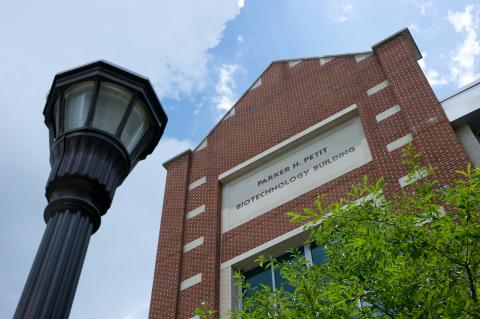event
Bioengineering Seminar Series
Primary tabs
"Linking Retinal Regeneration with Retinogenesis using Microfluidics"
Maribel Vazquez, Sc.D.
Associate Professor
Department of Biomedical Engineering
Grove School of Engineering
The City College of New York
(Rutgers University starting January 2019)
ABSTRACT
Progressive and irreversible vision loss affects millions of Americans each year and is a profound health challenge worldwide. Contemporary restorative treatments for retinal dysfunction have introduced stem-like cells (STLCs) into damaged tissue as replacements to re-establish synaptic connectivity needed for vision. In an idealized model, groups of STLCs recapitulate developmental behavior and migrate collectively toward precise injury sites along concentration profiles of biological factors. In truth, poor migration and positioning of transplanted STLCs have greatly limited the synaptic STLC integration needed to advance vision-restorative therapies.
The coordinated migratory processes of donor STLCs into host retinal laminae are only partially-understood. Our laboratory examines the migration of STLCs within microscale environments that mimic, both, developing retina and degenerated retina in order to quantitatively evaluate the cell signaling that leads to directional motility. Our experimental models use combinatory physiochemical signals and electric fields to recapitulate the STLC migratory responses and connectivity employed during retinogenesis in vitro and stimulate these desired behaviors in future cell replacement therapy.
BIOGRAPHY
Maribel Vazquez is a Founding Member of the Department of Biomedical Engineering at CCNY, established in 2002 by a team of 4 faculty who worked tirelessly to develop the new undergraduate curriculum and program. She established a micro-nanofabrication laboratory using initial funding from Air Force Office of Scientific Research (AFOSR) to acquire key pieces of microfabrication equipment in collaboration with Chemical Engineering.
Her Research Laboratory integrates the design and manufacture of microfluidic systems and nanoparticles to examine the migration of neural progenitor cells and their implications in the health and development of the Nervous System. Research projects have utilized bio-microtechnologies to examine the development and dissemination of glial tumors, develop integrated cellular systems of glia and neurons for regenerative medicine, and to investigate progenitor migration during retinogenesis and retinal transplantation.
Vazquez has served as Principal Investigator (PI) in research funding from the NIH (National Cancer Institute, National Institute of General Medical Sciences and National Eye Institute) and the NSF (CBET: Biomedical Engineering). She has also as Co-PI on several educational initiatives from the National Science Foundation (NSF: Nanotechnology Education for Undergraduates, Emergent Behaviors of Intracellular Systems) and AFOSR (Microtechnology and Fabrication for Mechanical Engineers).
Vazquez regularly Teaches Undergraduate and Graduate Laboratory-based Courses in Microfluidics and Microfabrication, BME Experimental Methods and Capstone/ Biodesign for BME Seniors and students in the Master's in Translational Medicine (MTM) program.
The Bioengineering Seminar Series is co-hosted by the Parker H. Petit Institute for Bioengineering and Bioscience, and the Wallace H. Coulter Department of Biomedical Engineering at Georgia Tech and Emory University.
Groups
Status
- Workflow status: Published
- Created by: Colly Mitchell
- Created: 05/24/2018
- Modified By: Colly Mitchell
- Modified: 09/28/2018
Categories
Keywords
User Data
Target Audience

